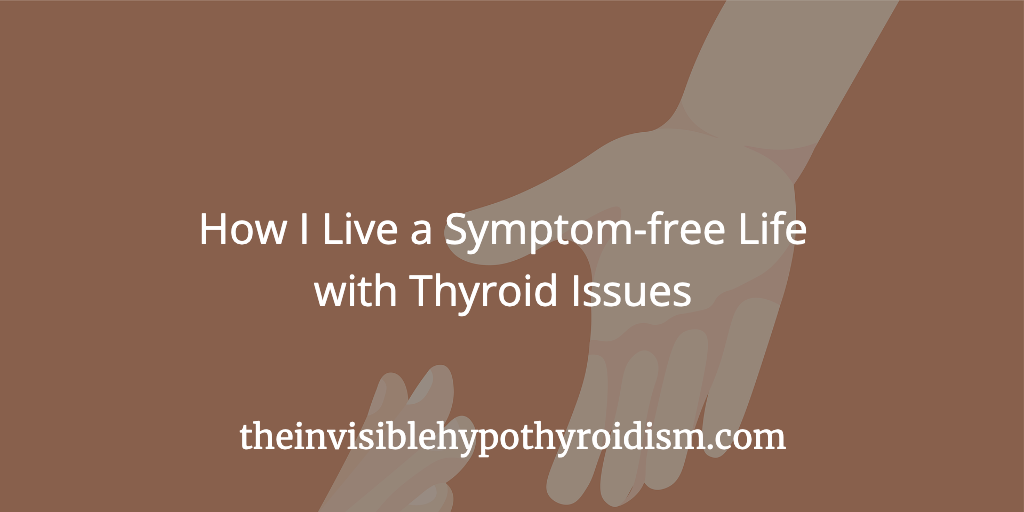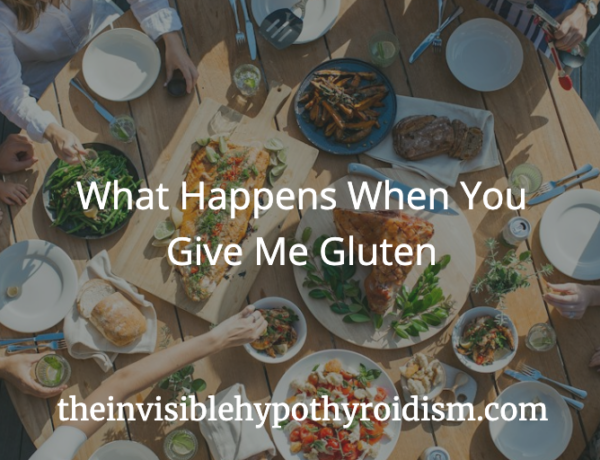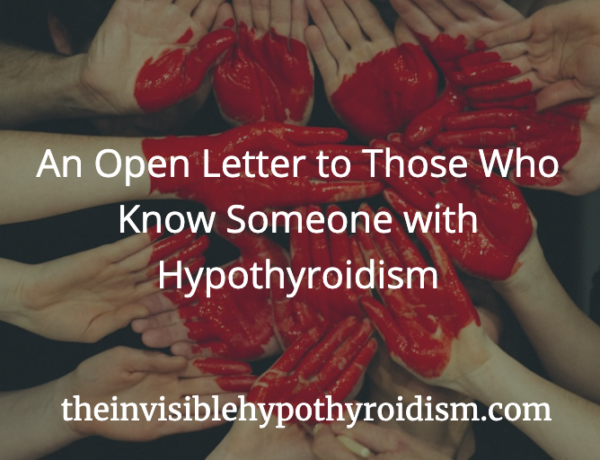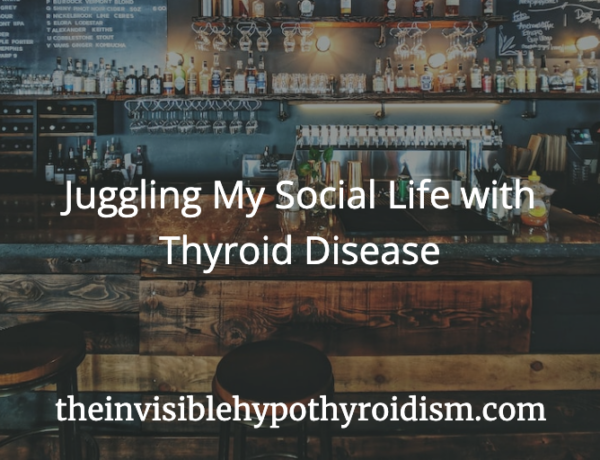I am often asked how I got to the point of living a largely symptom-free life with autoimmune hypothyroidism.
I say ‘largely’ because, like all of us, I still have the odd flare day, or circumstances such as pregnancy, my children keeping me up for much of the night or a stressful life event can send me hurtling back towards thyroid symptoms again.
However, for the most part, my thyroid condition is well controlled and in my day to day life, it doesn’t affect me in the ways that it used to.
What Does ‘Symptom-free’ Mean?
It means that I go about my day to day activities without thyroid symptoms getting in the way. I don’t wake up exhausted like I used to, I don’t have muscle pain at the end of the day like I used to and generally, I just don’t consciously think about my thyroid condition all that much anymore. A lot of the time, I kind of ‘forget’ that I even have it.
But, I do still implement the spoon theory which definitely helps with this.
The spoon theory is a metaphor those with a disability, chronic illness, health condition etc. can use to explain the reduced amount of energy available for activities of daily tasks, in comparison to those who don’t have a health condition and do not need to think about their use of energy levels.
Before my thyroid diagnosis, I was guilty of always overcommitting my time and energy, taking on way too much and frequently leading myself to an inevitable burn out due to it all. Of course, this contributed to my thyroid issues developing as early as they did (I had symptoms from sixteen and a diagnosis at twenty-one-years-old).
It takes balance and practice to learn how much energy we can reliably put out day to day without making our thyroid condition worse or causing flare ups.
Learning what my limit is with this has been a huge part of managing my health and keeping on top of it. So, I do still implement this practise, and, daily, remain mindful of how much I have on my plate each day so as to avoid taking on too much and going backwards in my health.
It can look like this:
- I prioritise being in bed by 9:30pm, knowing my children will get me up early. If I don’t prioritise getting as much sleep as possible, I have less energy for the next day and risk heading towards a flare / my thyroid condition being less well-managed.
- I will go out in the morning or afternoon, but rarely all day. If I am going out in the evening, I will plan to stay home during the day. Being out and about too much in one day uses up too much energy.
- I work part-time hours these days. As well as having a young family to look after, full-time work often left me drained and with no energy for anything else.
What My Health Looked Like Before I Was Symptom-free
Before my thyroid condition was well-managed, I experienced impacts to my worklife, social life, homelife and just about every aspect of my life you can think of.
I would experience symptoms such as:
- Heavy fatigue
- Muscle pain
- Acid reflux
- Migraines occurring at least a few times a week
- Hair loss
- Cold intolerance
- Heart palpitations
- Constipation
- Menstrual issues (heavy, irregular periods)
- Depression and anxiety
and more.
I was in the thick of it all when I started this very website, my blog, and began sharing my journey online in 2016.
Many years on now, I am thankfully in a much better place. My Hashimoto’s has almost constantly been in remission since 2019 (it only came out of remission after the birth of my children) and my thyroid levels and thus, medication, has been stable and optimised for quite some time. I have found the pieces to my thyroid jigsaw puzzle which I continue to implement every day in order to maintain my health.
So How Did I Get Here?
Well, it took years to get here and it has taken more than just thyroid medication alone.
During my journey, I have trialled and errored numerous things to recover my health piece by piece. I have learned that we all have slightly different ‘puzzle pieces’ and so it is with my thyroid advocacy work that I aim to share these so that we can all utilise them and move towards better health.
Some of my key interventions included:
- Switching from T4-only thyroid medication to one containing T3
- Adjusting my diet (going gluten-free and eating a better blood sugar balancing diet)
- Adjusting my exercise (routine, intensity)
- Exploring low vitamin levels and correcting any that were suboptimal
- Addressing high cortisol levels
- Addressing oestrogen dominance
However, you can read about them all in much more detail in my article about the puzzle pieces here, and also in my book (if you’re looking for something more concise).
It can take a while to tweak medication and find which lifestyle adjustments may help you too, but we do have hope of living a life largely unaffected by our thyroid condition. I hope what I have learned can help you too.
Related Post: Is Anyone Actually Well With Hypothyroidism?
Where are you in your thyroid journey? Feel free to share in the comments.
See also:






